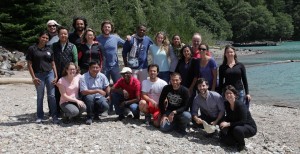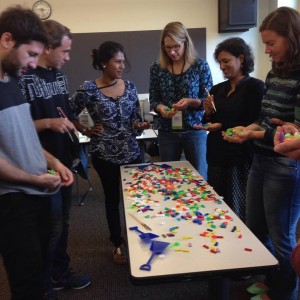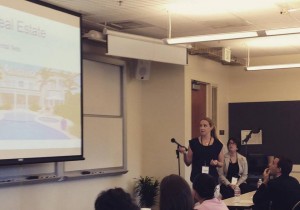Kinship Conservation Fellows is an environmental leadership program that emphasizes market-based solutions to environmental problems. Applied Scientific Research Department Head, Candice Brittain, was awarded a place on the prestigious program and headed out to Bellingham, Washington for a month-long fellowship in July.

The eclectic 2015 international cohort of fellows came from far and wide, travelling from Bhutan, India, Argentina, The Philippines, Sri Lanka, The Netherlands, South Africa, Madagascar, USA, Colombia, Mexico, Cuba, Vietnam, and The Bahamas.

On the first day, each fellow was asked to define conservation and sustainability and to share these definitions with the group. None of the 18 fellows had the same description; an important lesson that these terms can have very different meanings to different people. This set the scene for the coming month and the many challenges that lay ahead.
The Kinship curriculum explores incentives for conservation. The two themes for the month focused on cultivating leadership: skills and strategies & market (incentive) based conservation strategies. Fellows learnt about different types of leaders, how to re-frame their problems, and had invaluable one-on-one coaching sessions. The group grappled with economics and finance classes, learning from agricultural, water management, and carbon examples. Impact investment demonstrated a viable way to fund and sustain conservation initiatives, and there were lively class discussions on how conservation can be implemented and operated as a business, generating either income or other non-monetary gains to motivate stakeholders to conserve.

Taking on the roles of various stakeholders in high conflict conservation scenarios allowed fellows to realise opposing viewpoints, re-evaluate situations, and to practice and develop negotiation skills to find new innovative solutions. Emphasis was placed on how to create the most impact; if a project is successful, could it be replicated and then taken to scale?
Exciting field trips during the month included celebrating American Independence Day while kayaking at Larrabee State Park, 4 days hiking and learning negotiation skills at the Northern Cascades Institute, and finally an unsuccessful, but enjoyable, orca watching trip to Friday Harbour.

The program was concluded with each fellow presenting a site-specific project they are working towards, applying the knowledge they gained from the fellowship and adaptive strategies they intend to develop in the future.